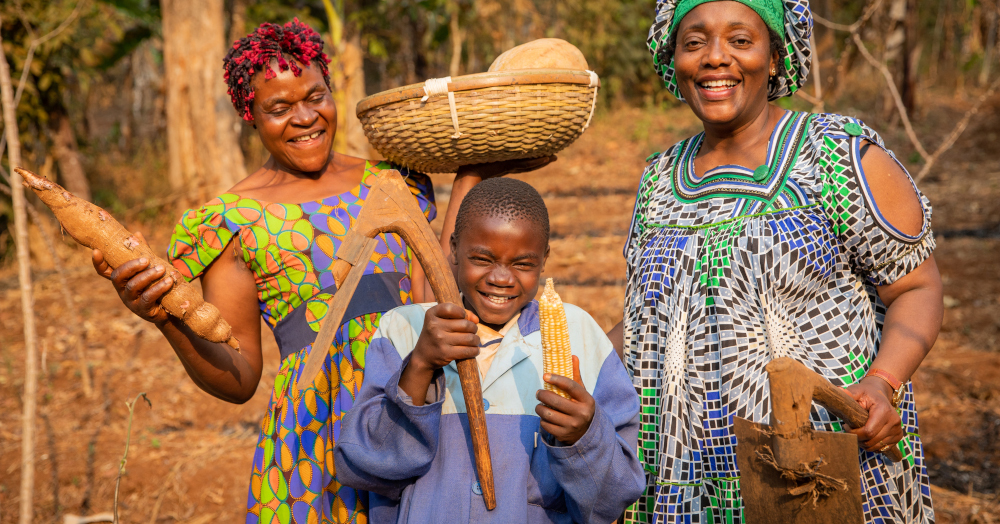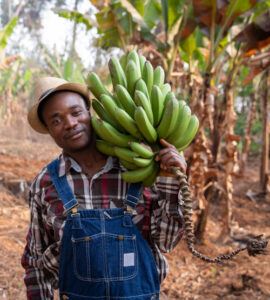
How Public Employment Programmes Are Empowering Rural Economies
South Africa’s rural areas are often described in terms of their deficits, of infrastructure, employment, and opportunity. Yet behind these narratives lies a quieter story of progress, where meaningful work and community-led development are reshaping futures. Through public employment programmes, rural communities are building skills, confidence, and sustainable livelihoods.
The Mvula Trust, whose work in community-based infrastructure development doesn’t just meet basic needs, it empowers people to be the architects of their own transformation. In 2025, as unemployment and inequality remain critical national concerns, such programmes offer more than short-term relief; they represent a long-term vision for inclusive, localised economic growth.
Jobs That Build Communities
The Expanded Public Works Programme (EPWP) is one of South Africa’s flagship initiatives for job creation. Designed to provide income relief through temporary work, it goes beyond mere employment by integrating training and skills development into each project. Mvula Trust’s model leverages EPWP funding to ensure that infrastructure delivery also benefits the communities that need it most.
Rather than outsourcing sanitation or water projects to large private contractors, Mvula works with community-based organisations, local suppliers, and emerging entrepreneurs. This approach ensures that a significant portion of project budgets remain within the community, stimulating the local economy and creating job multipliers.
Workers are paid stipends aligned with EPWP guidelines, but the true value lies in the additional skills gained, from bricklaying and plumbing to basic project management and occupational health and safety training. These are the tools of future employment and enterprise.
One of the most defining aspects of Mvula’s engagement in public employment is its commitment to training. Participants aren’t simply given tools, they’re taught to use them effectively and safely. In most projects, workers undergo structured training that includes:
- Construction basics (brickwork, mixing concrete, tool handling)
- Plumbing and sanitation system installation
- Workplace safety and health compliance
- Site management and project reporting
- Soft skills like teamwork, punctuality, and communication
By combining hands-on work with formal instruction, these programmes become launchpads for future careers. Several former participants have gone on to join SMMEs (Small, Medium and Micro Enterprises), while others have started their own businesses using the skills they acquired.
In 2024, Mvula collaborated with the Construction Education and Training Authority (CETA) to accredit its rural construction programme, giving participants a recognised qualification upon completion, adding credibility to their experience in a competitive job market.
Youth, Gender, and Inclusion in Public Works
 A key success factor in community-based employment is inclusive participation. Mvula Trust ensures that women, youth, and people with disabilities are not only included but actively prioritised. In many projects, recruitment targets aim for at least 60% youth and 55% female participation.
A key success factor in community-based employment is inclusive participation. Mvula Trust ensures that women, youth, and people with disabilities are not only included but actively prioritised. In many projects, recruitment targets aim for at least 60% youth and 55% female participation.
Specialised training modules have been developed to support female construction workers, addressing both technical skills and the unique challenges faced by women on construction sites. Mvula also supports the formation of women-led cooperatives, providing business skills and linking them to local supply chains.
In 2025, the organisation piloted a “Youth Builders Academy” in the Eastern Cape, offering six-month apprenticeships tied to live infrastructure projects. The success of the programme is already prompting replication in other provinces.
Inclusion is more than numbers, it is a philosophy that recognises the untapped potential of marginalised groups. When diverse voices shape infrastructure, the outcomes are more responsive, relevant, and just.
Challenges and Future Pathways
Despite these successes, public employment programmes face several constraints. Funding cycles are often short, leading to disruptions in project continuity. Procurement processes can be slow, delaying the start of urgently needed infrastructure work. And most critically, many skilled EPWP graduates struggle to find long-term opportunities after the project ends.
To address these issues, Mvula Trust has begun advocating for:
- Longer project timelines that allow for deeper community involvement
- Integrated pathways to entrepreneurship for top-performing workers
- Access to start-up grants or equipment pools for graduates wishing to launch their own micro-enterprises
- Policy reforms to embed EPWP into broader rural economic development frameworks
The goal is not just to employ people temporarily, but to transition them into sustainable work, whether in the public or private sector.
Collaborating with Government and Donors for Scalable Impact
Mvula’s approach is inherently collaborative. Projects are executed in partnership with:
- National and Provincial EPWP units
- Municipal infrastructure departments
- Training and SETA bodies like CETA and LGSETA
- International donors and development agencies, such as the European Union and UNICEF
These partnerships ensure projects are well-resourced, monitored, and aligned with national development goals. They also enable scaling, successful pilot programmes can be expanded to new areas, reaching thousands more beneficiaries.
In 2025, Mvula was selected to lead a multi-year, donor-funded Rural Infrastructure Employment Accelerator, targeting 25,000 jobs across five provinces by 2027.
In a country facing some of the world’s highest unemployment rates, public employment is not just a policy option, it’s a national imperative. But as The Mvula Trust has shown, when public works are community-based, skill-focused, and inclusive, they become much more than job programmes. They become engines of dignity, growth, and long-term resilience.
Each pit latrine replaced, each rainwater tank installed, each road paved by local hands is not just a development milestone, it’s a moment of empowerment. When people build their own future, they protect it, grow it, and share it.
South Africa’s rural economy is not empty, it’s waiting to be unlocked, one opportunity, one job, and one community at a time.




